I have a great many reservations about publishing this letter. Chief among them is my extreme distaste for sectarian squabbling among Christians — a practice that has, sadly, been a sort of national sport for us quite practically since the day our Lord ascended into heaven. In publishing any sort of writing about the doctrinal differences of various expressions of the Faith and my own opinions about them, I fret to imagine that I might unintentionally stoke the tragic, often painful flames of these ancient conflicts. I must state unequivocally that in publishing this letter, I wish to do so far more in the spirit of Christian brotherhood than toward the end of inflaming any sort of long-standing disputes between the East, the West, and the tiny, passionate, newly burgeoning “East” within the West.
In fact, the optimist in me wonders whether public discourse and meditation upon these differences couldn’t ultimately lend itself toward building real unity. For just as a separated couple mired in a web of painful marital disputes do themselves no favors by adopting a policy of total and indefinite silence — us separated brothers in Christ might consider that talking is good and even extremely necessary. To discuss, respectfully and in a spirit of love and charity, the various differences that have us all ambling off to different Churches every Sunday (the steeples of which are, now and again, actually within eyeshot of one another) — we might even rightly consider this our duty as Christian laymen. And if I could be so bold as to comment on what Priests, Bishops, Patriarchs, and Popes ought to be doing, I might suggest that they bear this duty doubly so, for the fate of Christ’s one, Holy, Catholic and Apostolic Church sits directly in their hands.
After all, First Corinthians makes one thing rather clear, in passage 1:10:
I urge you, brothers, in the name of our Lord Jesus Christ, that all of you agree in what you say, and that there be no divisions among you, but that you be united in the same mind and in the same purpose.
To worldly eyes, this formulation might read as naive — or even outright Utopian. Yet in the eyes of God, it is anything but. I might even dare to say that inasmuch as a teaching seems to be a ‘hard teaching’, as this one does, it is all the more ripe an opportunity to increase our humility on the long, tiring, often impossible-seeeming road to edification and Sainthood. And while there may be a temptation to place the full weight of the schisms I am about to explore here onto the shoulders of our Bishops — I contend that even us lowly laymen must rush to their aid in any way we can, to offer them whatever help we can in bearing this heavy Cross.
And though this letter is written by me, a Catholic, to an Eastern Orthodox Christian, and is therefore written without much mind paid explicitly to our Protestant brothers — I wish to state very clearly that I might make some similar arguments toward the end of our reconciliation with them as well. For though the specific contentions I might offer in that discussion would differ considerably from those that I would raise with the Eastern Orthodox, the message would be the same: to amply, enthusiastically, lovingly carry out the vision postulated in First Corinthians — to be “of one mind.” Whatever our differences, I quite sincerely and firmly believe that reconciliation is possible among all Christians globally, if only we face our various fragmentations boldly, actively, in a spirit of humility, and above all, together.
It is my hope that this letter I’ve written to a very dear friend of mine might aid in that, if even in a small way. Perhaps here, I approach matters in too calculated a manner, or focus on numbers and demographics far too much. I am certain beyond all certainty that I do not have the entire picture; that everything written here contains immunerable blind spots. But if nothing else, what I’ve put to paper here may offer non-Catholics, and especially the Orthodox, some kind of a window into what would drive a human soul away from the East and toward Rome.
For that is exactly what I myself did. I was a Catechumen in a Greek Orthodox Church for quite a while. I was exceedingly earnest in my desire to be Orthodox, and at times, harbored sharp criticisms of Rome — many of which were patently unjust or even irresponsible to vocalize. I was wading into an ancient world far, far larger than I could comprehend. Even still, a number of years after my reversion to Catholicism, I cannot claim to know very much. If nothing else, my earnest love and intimate familiarity with both Churches makes me pine all the more sincerely for our schisms to be sewn up once and for all, and so perhaps my position is at least a little bit unique.
But many who know me have asked: “Why did you stop your conversion to Orthodoxy? Why go to Rome? Look at the state of the Vatican, look at Vatican II, look at the Novus Ordo — how could you get into that when you’ve already come to know Orthodoxy?”
Perhaps I can answer some of those questions here, or at least introduce my response to them in the most basic way I can. Suffice it to say that I came to value unity so fervently that I decided it best to make my amends with Rome rather than veering into a world of ancient Eastern schisms, cultural differences, politics, and disputes that are far beyond my comprehension. When I crave the Divine Liturgy of Saint John Chrysostom — complete with the omission of the Filioque, if I like — I now go to Eastern Catholic Churches, where one would not know they were not in an Orthodox Church but for the portrait of Pope Francis in the narthex. To attend such a Liturgy is to know the heavenly riches and beauties of the East — but to do so in Communion with as many Christians on earth as I could possibly be. What a profound blessing!
Owing to what is written in 1 Cor 1:10 — I feel this kind of deeply global Communion is the best option for me, and I pray that this decision is legible upon every word I have written here to my friend. As for the rest of the story, well, I have already written a very lengthy treatise on my reversion, which will remain unpublished for now. I am nervous to publish the whole thing, as, again, I wish not to stoke controversies. But if you should like to see it printed, leave me a comment below and I may consider releasing it if it is what you would like to read.
With all that said, here is my Open Letter to an Orthodox Christian. Let us all pray for the complete unity of all Christians on earth, and let us pray that we speed toward this most laudable end with miraculous efficacy. Let us aid the world’s great Bishops in guiding our respective Churches toward togetherness and Communion, in humility and in the heavenly love of Christ.
Dear ————,
Lovely seeing you the other day — I always find our visits so refreshing. You had mentioned that I ought to send you the chart showing which Orthodox Churches are in communion with which, and it took me a bit of time to find it. But here it is, attached, along with a good deal of other related information, statistics, and some of my own analysis. I present all of this information purely in the spirit of brotherhood, and on the hopeful chance that it could contribute to your own ascendance to Sainthood. So, if you are keen to indulge me here, allow me to dive in.
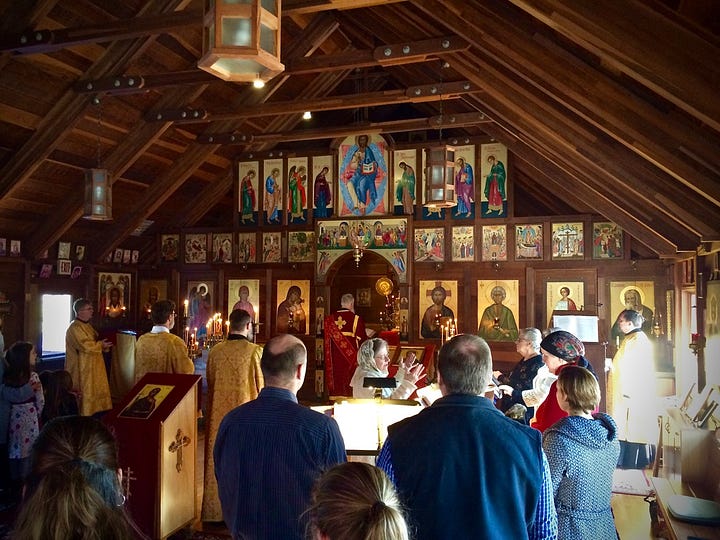
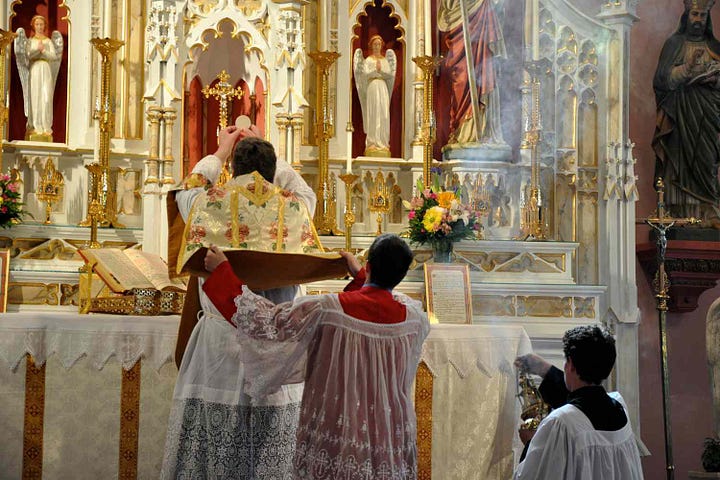
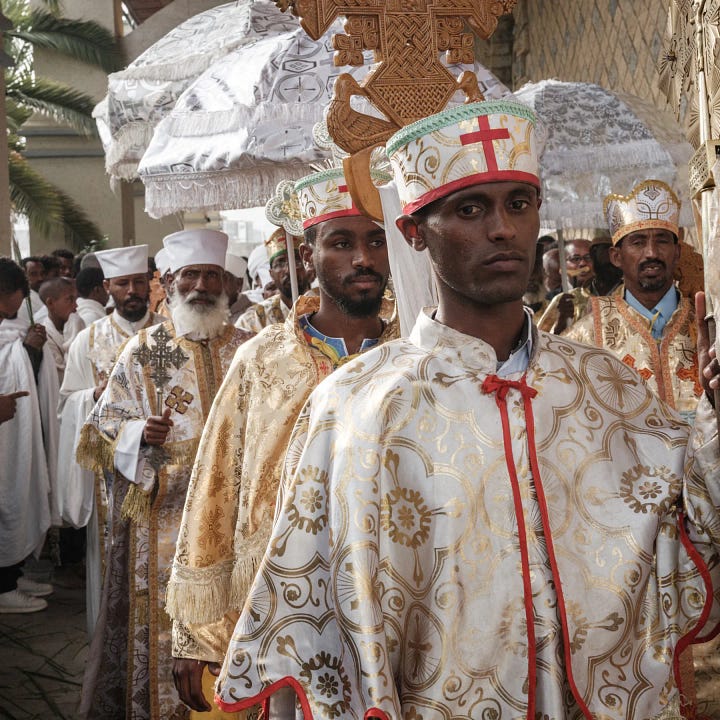
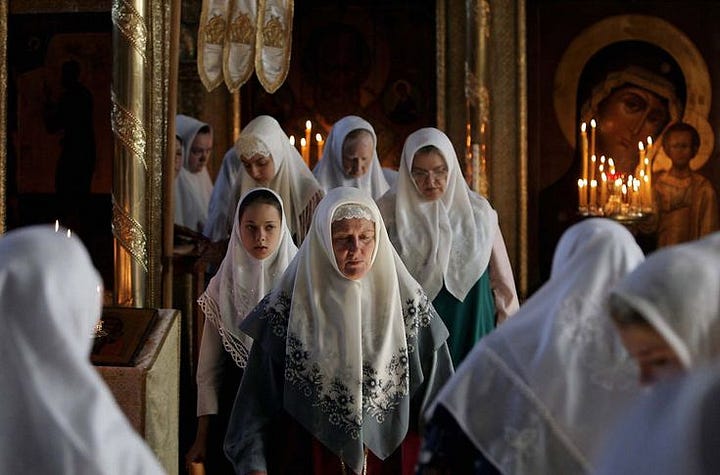
Let us first consider that among the Eastern Orthodox, the Russian Orthodox Church is the largest, at 164,000,000 adherents, or 63% of all Eastern Orthodox on earth. They are — notably — NOT in Communion with the Greeks, the Antiochians, or OCA, among many others, and they only re-entered into Communion with the Russian Orthodox Church Outside of Russia in 2007.
After the Russians, the Romanian Orthodox Church is the next largest Church, at 18,800,000 members. Notably, they are in Communion with the Greek Orthodox Church, which is the third-largest at 10,000,000 members, and are in Communion with the Serbian Church (10,000,000), Bulgarian (6,500,00), Georgian (3,500,00), Church of Constantinople (2,800,000), Greek Church of Alexandria (1,500,000), Antiochian (900,000), Cyprus (650,000), Polish (600,000), Albanian (300,000), Patriarchate of Jerusalem (130,000), Czech and Slovakia (110,000) and OCA (100,000). This all adds to a total of 55,890,000 souls in full Communion with one another, of which you and your household are a part.
For a size comparison with the Roman Catholic Church, these Churches altogether comprise a group approximately 4.54% of the size of the Roman Catholic Church. Factoring the quite numerous smaller Churches that are in Communion here (all of which have fewer than 100,000 adherents, and therefore did not make the list of the 15 largest EO groups) we might adjust that percentage size to as much as 5%. And so we can soundly estimate that for every Orthodox Christian in this grouping, there are twenty Roman Catholics. Or, in another light, there may be an entire Catholic Parish somewhere in the world for every American and Canadian in Communion with the Greeks.
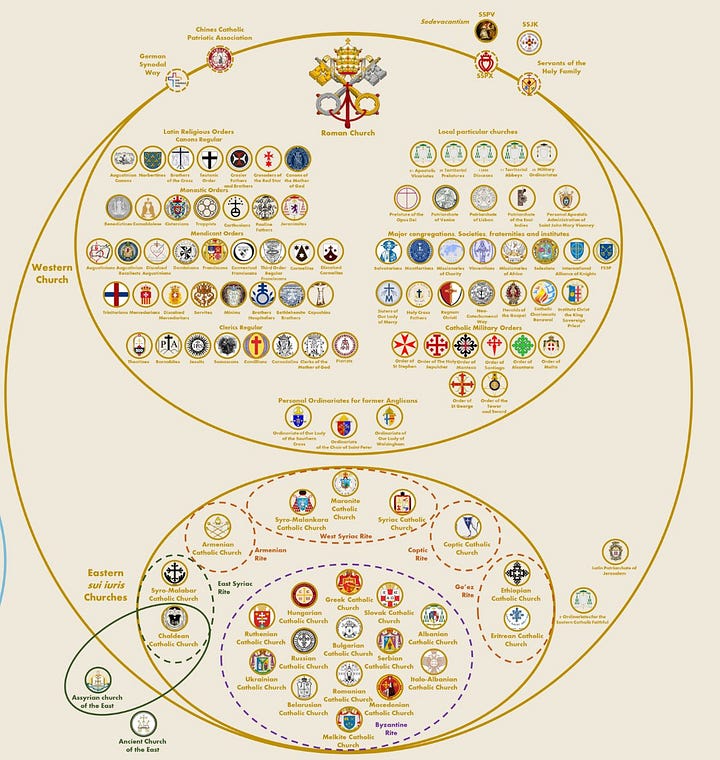
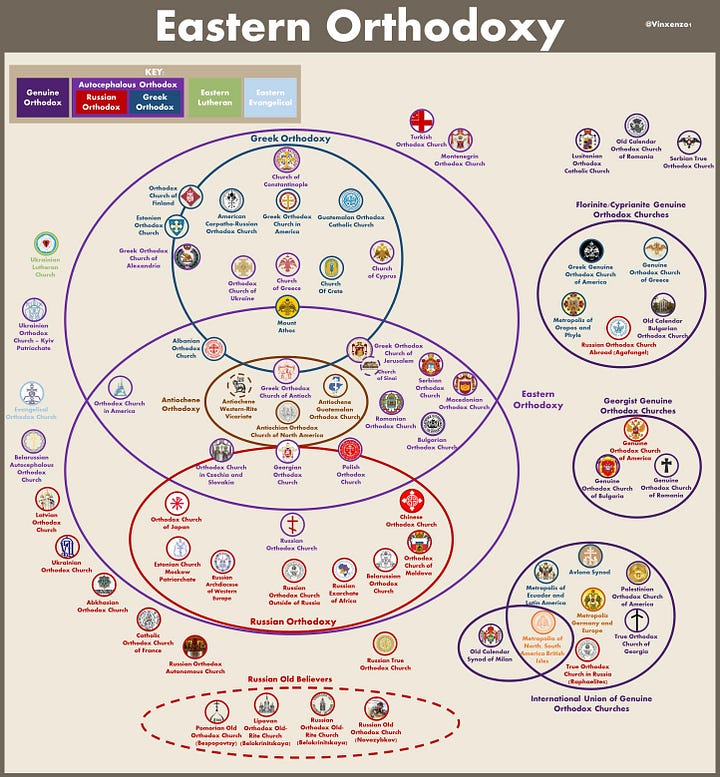
The agglomeration of Eastern Orthodox Churches all in Communion with the Greeks and Romanians is also, for a size comparison to Eastern Catholics, about 310% their size, as there are only 18,000,000 Eastern Catholics in the world. Within the USA, this difference is less pronounced, owing to a larger number of Eastern Catholics per capita than many other regions on earth. In the US, there are about 1,200 Eastern Catholic Parishes, where the Eastern Orthodox have approximately 2,000.
This grouping would also comprise about 2.3% of all Christians on earth (~22% of all Eastern Orthodox), and 0.7% of the earth's total population.
The Russian Orthodox, by contrast, represent 6.8% of all Christians (63% of all Eastern Orthodox) and roughly 2.05% of the world's population.
The remaining ~15% of Eastern Orthodox would be those are not in Communion with either of the above groups, including many millions of Ukrainian Orthodox, various Old Believers, Old Calendarists, and other groups outside of full Communion with the two largest Orthodox authorities.
The Oriental Orthodox, as well, would be 2.08% of all Christians and 0.625% of the world's population.
Roman Catholics would be approximately 50% of all Christians and 17.7% of the world's population.
25.8% of the world is Muslim, for reference. Even if all schisms among Apostolic Christians were healed, and we were all in Communion as one — we would STILL be fewer in number than all the Muslims on earth. (Keep in mind that these numbers are all fairly hard to ascertain accurately, as they change often, and many of the smaller Churches do not take any kind of census. Nevertheless, this very rough math could prove useful toward the end of discerning the true 'weight' of Apostolic Christianity's various iterations)
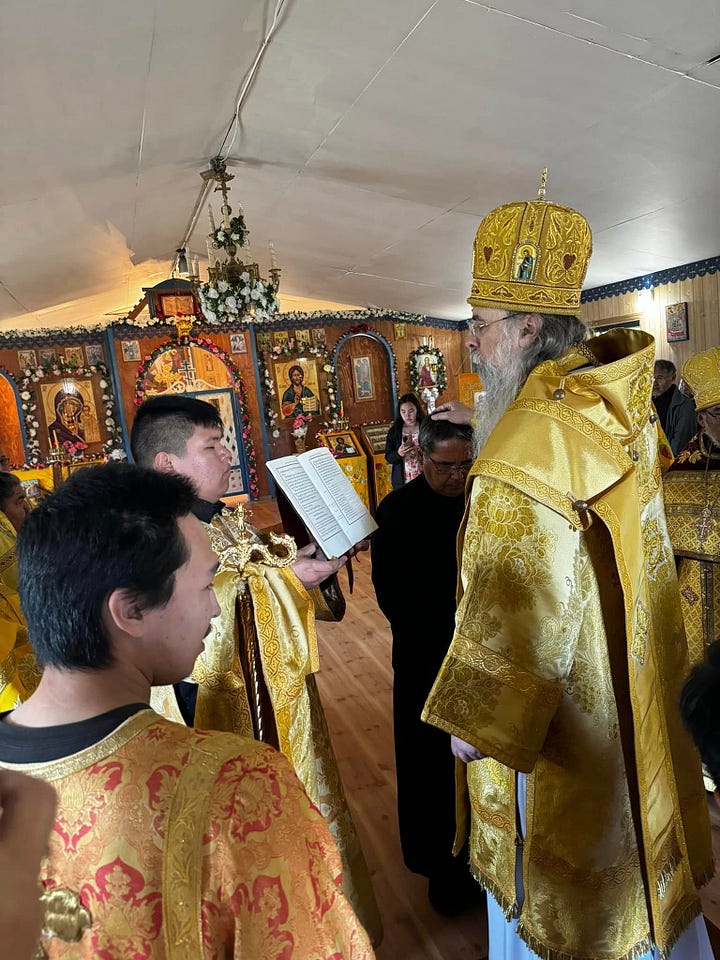

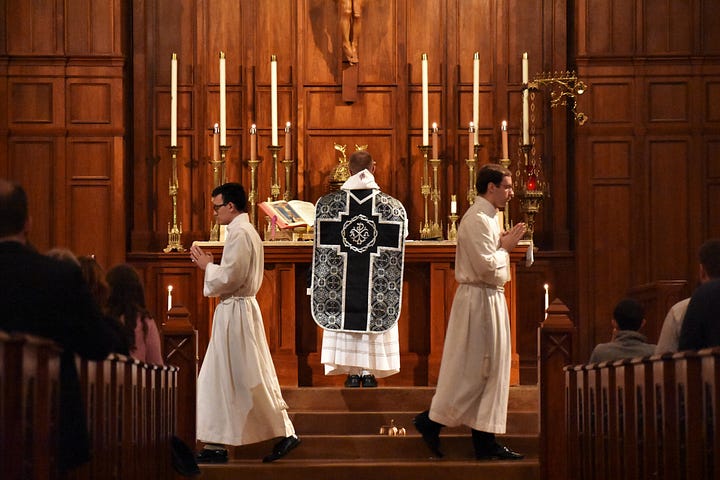
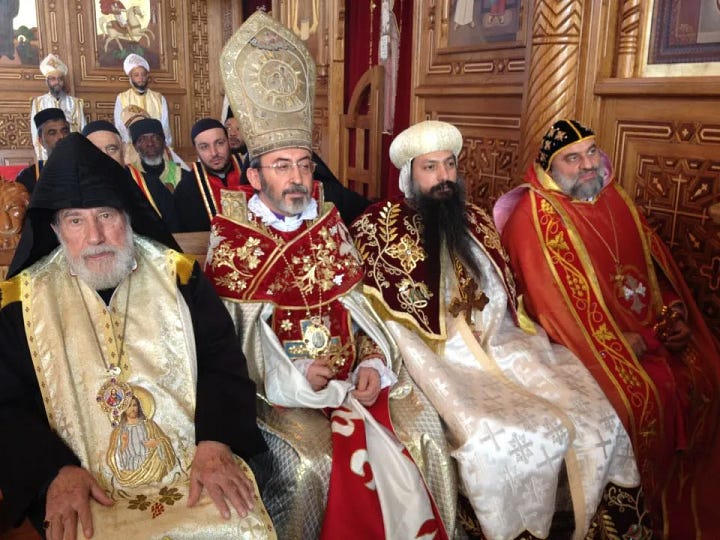
None of this is to say that "the biggest is the truest" — if that were the sole metric of truth, perhaps I would argue that we all ought to become Muslims. BUT, these numbers are useful nonetheless, as it quickly becomes easy to see what a ghastly cancer schism actually is to global Christendom. The fragmentation of the Church in this manner limits our ability to act as a unified global body; it cuts the faithful off from shared resources, cuts them off from one another, and is, in total, a perversion of our commission as Christians to, as First Corinthians 1:10 states, "be of one mind," with "no divisions among us." And by extension, our ability to evangelize the world is severely limited, if not actually crippled in many cases, owing to the fragmentation of the one true Church.
In highlighting these various fractures in the Body of Christ, I do not do so to lord over those Churches who are a fraction of the size of the Catholic Church — not by any means. Instead, I draw your attention to these comparisons only to state that if we are to voluntarily live and worship outside the authority of Rome, there had better be a truly grave, extreme, outrageously extenuating reason to do so, lest we find ourselves transgressing Scriptural commands in vain. Doubtless, in the long list of Churches who profess the creed of “one, holy, Catholic and apostolic Church,” many have, tragically, done exactly this — and we must seek to remedy it as lovingly and as expeditiously as we are able.
While one response to this situation — which I believe ought to qualify as a crisis of truly historical proportions — is to enter into Communion with Rome, either as a whole denomination, a single Parish, or as an individual family, let us entertain the possibility that elements within Churches outside of Rome’s authority could plausibly work to stitch up these horrid gashes in Christ's Church from outside Rome. But the question becomes one of how practicable this really is, owing to the tendencies of various fragmented Churches to cling onto schism at practically any cost. For example, if the Antiochians or OCA wished to enter into communion with the Russian Church, an era of feverish controversy would certainly ensue. The same is true — perhaps even more true — if the situation were reversed, or if one of these Churches aimed to enter into full Communion with Rome. In all hypothetical cases, those taking the ecumenical route would likely be derided as heretics and schismatics by a more conservative faction, and eventually, one Patriarch or even a Priest may refuse the measure and splinter off — and the "true Antiochian" or "Genuine Russian" Orthodox Churches, et cetera, would be born, in more or less endless permutations.
From a layman's perspective, in some sense, these quandaries are not even on the table; these are the concerns of Bishops. Nevertheless, it is the laity that professes “one holy, catholic and apostolic Church” every Sunday — and this profession of catholicity must be taken quite seriously even by the layman.
And so I find it worthwhile to ask: Is it more possible for a lay Catholic to influence a Priest or a Bishop to adhere to be more “little-o” orthodox? Or is it more possible for a lay Orthodox to influence his Priest or Patriarch to enter into ecumenical dialogue with other Churches, and to therefore be more “little-c” catholic? Inasmuch as we wish to explore our power on the question of unifying the Church, this is an important line of inquiry.
Of course you know how I myself have answered it — I went back to Rome, and have done so with great gusto and conviction.
In the case of the Orthodox layman, if he insists on holding fast to the Eastern way, and for whatever reason cannot stomach the idea of attending an identical Liturgy in communion with Rome (as it is with the Eastern Catholics), he must take extreme care not to slip into a strictly personalistic faith (“I just focus on my faith, unity is for the Bishops to settle…”) nor into a status of complete resignation at the frankly abominable realities of these schisms.
This is certainly the hardest path, for the Orthodox layman is bound by the hiearchy to which he has submitted, and can ultimately do nothing but dialogue with the other faithful, and, where possible, his Parish Priest — but toward what particular end? It is readily imaginable that one could tirelessly devote their life to this effort without achieving anything even vaguely close to end they sought.
The Catholic is faced with the same problem, in one sense, at least inasmuch as his quest is to increase the 'orthodoxy' of the Catholic Mass — but in another, he is at least armed with two millenia worth of canonical teachings that firmly and infallibly establish the Liturgical form of the Christian life. Vatican II need not be an obstacle on this point, not by all that I have read of it, nor is the Pope's disposition on the matter — which is not nearly as negative as some sources seem to repeat — altogether a hurdle either.
For it is licit for a Parish Priest to offer the Novus Ordo Liturgy Ad Orientem, in Latin, with incense, Gregorian chant, and to distribute Communion solely on the tongue and fron the Priest only — all without the oversight of the Dicastery, unless I am mistaken. The result of this would be and is a Liturgy that would satisfy virtually any observant Eastern or Oriental Orthodox Christian, or, at any rate, it is reasonable to believe it should. All the Catholic layman needs to do, then, is to assemble other faithful in his particular Parish who would affirm that these changes would not only be welcome but should be considered crucial; and over time, the Priest and Bishop both may adhere to a more orthodox expression of the holy Mass.
This is presently happening all over North America with startling speed, as my wife and I have observed at countless Parishes in our travels. And let us thank God for it and ask His belevolence and charity toward this incredible effort. This phenomenon may right stand as a proof that it is markedly simpler to conceive of making the Catholic Church “more orthodox” than it is to imgine making any of the many Orthodox Churches “more catholic.”
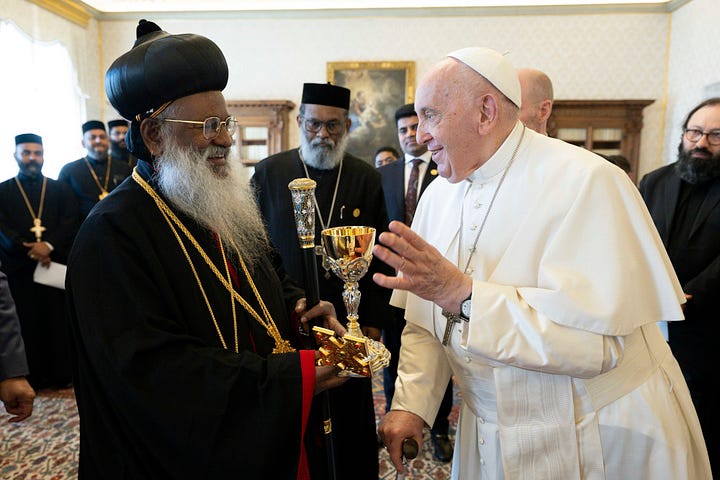

I send you all of this information and analysis solely in the spirit of brotherhood, as I consider you to be a great friend the likes of which I would not part with for any reason whatsoever. My affection for you, and indeed, for anyone, shall never be contingent upon which expression of faith they adhere to — even to include non-Christian faiths or a lack of any faith altogether. I have no great judgement against you for the particular mode of faith you have found and held fast to at all; but on some of these points, I felt as if my own notes on the matter, conceived during my own reversion to Catholicism, could be of some use.
You had mentioned wanting the image of which Churches are in communion with which, for the purpose of hanging on the wall of your Parish hall — and I applaud you for the idea, for it is an excellent one! Likewise I feel every bit as compelled to do the same in my own Church if presented with the opportunity. We should forever be reminding all Christians that these fragmentary tendencies in Christendom are abhorrent, and that we must all exert ourselves forcefully toward excising them from the world of those who serve Jesus Christ.
And in closing, I will say that I very much pray that the One True Church could not really be a Church that comprises only 0.7% of the earth's population, or less — for the idea that this could be remotely true is painfully grim. To my mind, it is painful enough to imagine that less than one in twenty human souls on earth would be in Communion with Rome!
But in the thirty or so Orthodox Churches I ever visited, this admittedly obscure, apocalyptic view was often enough actually held to be the case, and I found it too heartbreaking to accept. I am not sure how there are so many Christians the world over who can stomach the possibility that basically all of Christendom is irredeemably wayward — and that only a small handful of people are in possession of The Truth. Perhaps my contention with this idea belies weakness in me, I do not know.
These are very serious matters that should be taken into strong consideration by all Christians worldwide in any case, and I am glad you show such an enthusiastic willingness to discuss them so openly and earnestly. Often when I have presented Orthodox Christians with these findings and ideas, I find I have accidentally caused offense, or have 'ruffled feathers' — none of which is ever my aim, for I understand the reasoning by which one might arrive at the Eastern conclusion, having lived it myself for a time. I have simply thought long and hard about these things, and wish to devote myself as seriously as I can toward the end of stitching up every last schism. By all I can tell, this must involve Rome. Or, if Rome has truly strayed into the territory of extreme and irreconcilable apostasy — global unity for all Christians could be rightly considered a total impossibility. I cannot abide the idea that this is in any respect God’s will for His people, and as long as I live, I pray to have the strength to stand against it by bringing Christians everywhere closer to one another, inch by inch.
If this is long, forgive me — brevity is not my forte by any means. I simply would not wish to skimp on volume and depth when writing to you about a topic of such gravity and importance. I pray our friendship might, whatever the case, stand for many years as a testament of brotherhood between the East and the West.
Yours in Christ,
AMH
The unity I speak of in this letter is only one of many reasons why I am a Roman Catholic. There are dozens of other contributing factors behind my decision to veer back West from my stint as an Eastern catechumen; I adore the Rosary, for example, and I find it difficult to live without daily Mass. I am drawn to the simple, humble, quiet poverty of Saint Francis, and in likewise fashion, I feel a certain magnetism toward the simple, un-curated, multi-generational yearning for Jesus Christ that one finds among old-time parishioners in simple, low-key Catholic Parishes. And while the Latin Mass was a major catalyst for my reversion — I now attend the Novus Ordo, and quite happily at that, and even find myself turning away from the “rad trad” mentality that I harbored when I first re-entered the Church.
Because at the bottom of all of these considerations, I have a hunger for love — for God Himself is, as it is written in the Book of John, love. Love is not an ossified, schlerotic, obscure thing that hides; nor is it a thing that impugns against the hungry, earnest, wandering souls of the strangers. It is does not “cut off” or point toward splintering or schism — it is characterized by a tireless desire for unification and Communion at the heavenly table set by our Lord, who loves us all, and appears to wish for us all to enter into confraternity globally. And so it is that I will walk into any Church — not only a Catholic parish, or an Orthodox one, but a Protestant Church, too. In the company of Muslims, I will discuss Godly things, searching for what common ground we share, and when I am near the secular, irreligious sorts of people, I will listen to their contentions with the idea that God might’ve fashioned them from nothing for a heavenly purpose.
My house is open to them all, and I mean this literally and figuratively, too — the house of my own heart must, as I understand the Gospel, be open to the souls of men the world over, and at that, I should aim to smile at them all. For if I do not, how can we be brothers?
Let us fix up “the big house.” This Catholic Church of ours may need maintenance and fixing, it may require a coat of paint, or new trim and doors. Its gardens may need weeding and watering — its tenants may be suffering or lonesome, and may be well-served by the breaking of bread among new friends. When I purchased my own home — the house in which I am writing this now — some said that it was a “tear down,” that “could not be fixed.” I smiled at them as they said it, for I knew that it was not true, and it was not. Now my house bustles with warmth and good company. Perhaps the Roman Catholic Church is not quite so rotten and condemnable as many have made it out to be. And in the spirit of unity — that spirit which would ever drive a man to pine for a great big castle of a house, not for his own luxury, but so its doors can be opened to the wide world, such that all souls on earth can fit — I can only fling myself with great enthusiasm and joy at the task of shaping up and fixing this grand old house into something that nourishes the souls of all people the world over.
Though I have been tempted many a time to fashion my own house, or to cower in tents, or to enter into smaller, stranger, more hidden houses — I was eventually drawn to the beauteous vision of turning my eyes toward the Big One. For to fix it is a promethean gamble; it is to love the world so foolishly that what one does seems unthinkable or unwise. But this is the nature of love — it is never well-reasoned. One cannot Google their way through it. One need not scour the earth to find its most perfect form. It is already there, hidden beneath our noses — if only we will adhere ourselves to the project, together, as friends, and make it come alive.
To all my Orthodox brothers and sisters — the light will be on, and by the prayers of Saint Francis, I should hope to find you at our table, even if you might come only as a visitor. You will be welcome here.
It will be as if no schism ever existed to begin with.
God bless you, each and every one.




Interesting to read this Andy, and I thank you for it. I have been thinking for a long time of writing a piece about why I became Orthodox, but I held back for the same reasons as you: I don't especially want to be arguing with my fellow Christians. It is hard to explain why you do a thing without sounding like you are attacking those who do otherwise.
Still - since you have written this, it gives me a chance to offer a personal Orthodox perspective. It is only mine, and I have only been Orthodox for five years, so take it as it is offered, in a spirit of brotherhood. I hope we would all like to see this schism healed one day. If God wills it, it shall be so!
Anyway, let me make a few points:
- Firstly, as other commenters have pointed out, you misunderstand the issue about which churches are 'in communion' with others, and what that means. You are presenting Orthodoxy as a squabbling nest of micro churches all arguing with each other and refusing communion to others, and this is not the case. There are (usually political) disagreements between some of the patriarchates, but the fact is that I can walk into any Orthodox church today and hear the same liturgy being sung. It will be sung in different languages, but it will be older by far than anything the Roman Church is offering; it has not changed in essence for over a thousand years. This is important.
- Secondly, Christians today make up over 30% of the world's population, while Muslims make up 25%.
- Thirdly, numbers are irrelevant anyway. Truth is what matters, and where we think we find it. Christ tells us more than once that few people will find the true Way. Bums on pews is not a measure of truth.
- Fourthly, please bear in mind that the Orthodox church has never taught that Catholics are all damned or any such nonsense like that, or indeed that their sacraments are in themselves invalid. The Roman branch of the church is regarded as a valid part of the Christian communion which has fallen into error.
- Fifthly, it's worth digging into the claim about numbers and its implications. You seem to be arguing that because there are more Catholics than anyone else, we should all join up with Rome in order to achieve unity. Leave aside for a minute the question of whether unity matters more than truth, and look at the history.
The fact of the matter is that it was the Roman branch of the church (which is not 'catholic', ie 'universal'; there is no church that can make that claim today) which slapped the decree of excommunication down on the altar of Hagia Sophia during the Divine Liturgy one day in 1054. That is to say, it is the Roman Church which chose schism.
The Orthodox perspective on this is worth understanding, even if you don't agree with it. The Orthodox churches believe that one branch of the universal church - the Roman patriarchate - made indefensible power claims that the other churches could not support, broke with the agreed teaching of the first seven ecumenical councils (eg, on the filioque) and then went its own way. Since then, it has introduced any number of innovations, from Papal infallibility to the assumption and the immaculate conception, to the existence of purgatory, and to an Augustinian understanding of inherited sin.
All of this, combined with the vast accretion of political power to the Papacy, has itself precipitated endless schisms within the West. At one point there were two popes in competition with each other, endless heresies proliferated throughout the middle ages, and ultimately the Reformers broke with the Papacy over many of the same claims that offended the Orthodox. The Orthodox east sees the Roman-Protestant split as a quarrel within the Western Church. Take that claim seriously and we see that the Roman church is responsible for and endless proliferation of tens of thousands of churches worldwide.
All of this is leaving aside the fundamental differences in worldview - phronema - between east and west, especially over the nature of God. They are substantial enough that I found myself going east. This was not just because I reject the power claims of the Bishop of Rome, but also because when I sought mystical prayer, an unchanged liturgy and a church which does not give any of its bishops the power to change it at will, I found it in Orthodoxy.
Well, it looks like I just wrote that piece after all.
I offer this in a spirit of brotherhood. I don't claim for a moment that the Orthodox churches do not have plenty of serious problems, and I certainly don't claim either that Western churches contain no truth, beauty or wisdom. But this is how I understand matters.
Love to you and Keturah,
Paul
Just wanted to vote “yes, please publish the reversion story.”